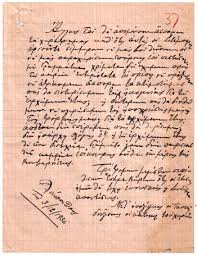
Trevor Todd has contested wills including wills variation in Vancouver for 50 years.
Buatista v Gutkowski Estate 2023 BCSC 1485 is a favorable plaintiff’s case where an infant son was abandoned by his mother and raised by extended family members in the Philippines after his mother moved to Canada.
The mother had little to do with her son and he first met her at age 7. She provided some financial support, but the court was suspicious that it had been adequate.
They met in 2018, and had an argument about her financial support of her niece. The deceased never spoke to her son again and he produced evidence of many unanswered text messagesto his late mother.
The deceased had left her only child, 25% of a $900,000 estate, with the residual 75% going to her niece and sister.
The court varied the will, to instead provide 60% to the abandoned adult child, and 20% each to her sister and niece.
The Law
The leading authority on wills variation in British Columbia, albeit decided under an earlier statute, is Tataryn v. Tataryn Estate, [1994] 2 S.C.R. 807, 1994 CanLII 51. The provision considered in Tataryn is worded slightly different than s. 60 of WESA, but the concepts are the same: Scurek v. Scurek, 2021 BCCA 178 at para. 7.
[39] In Tataryn, the Supreme Court of Canada said that a court has broad discretion to make orders that are just and equitable in the specific circumstances of the case, and in light of contemporary standards. The statute must be read in light of modern values and expectations in a search for contemporary justice: Tataryn at 814–816.
Dunsdon v. Dunsdon, 2012 BCSC 1274, in cases decided after Tataryn, courts have considered a number of factors as informing the existence and strength of a testator’s moral duty to independent adult children. The same considerations are also relevant to determining what constitutes adequate, just, and equitable provision in the circumstances of the case: paras. 131, 134.
The factors were set out at para. 134 and include:
· relationship between the testator and claimant, including abandonment, neglect, and estrangement by one or the other;
· size of the estate;
· contributions by the claimant;
· reasonably held expectations of the claimant;
· standard of living of the testator and claimant;
· gifts and benefits made by the testator outside the will;
· testator’s reasons for disinheriting;
· financial need and other personal circumstances, including disability, of the claimant;
· misconduct or poor character of the claimant;
· competing claimants and other beneficiaries.
In McBride v. Voth, 2010 BCSC 443, Ballance J. wrote:
•
“The modern judicial trend indicates that the court will enquire into the role played by the testator in the estrangement or relationship breakdown, and where it is seen to be largely the fault of or at the insistence of a testator, it will likely not negate a testator’s moral duty, and may even enhance it. The weight of the authorities also indicates that the court may discern a moral duty as a means of rectifying the testator’s childhood neglect of the children”




